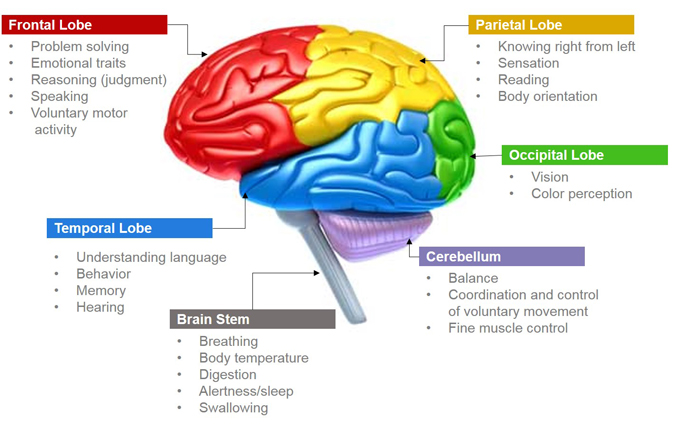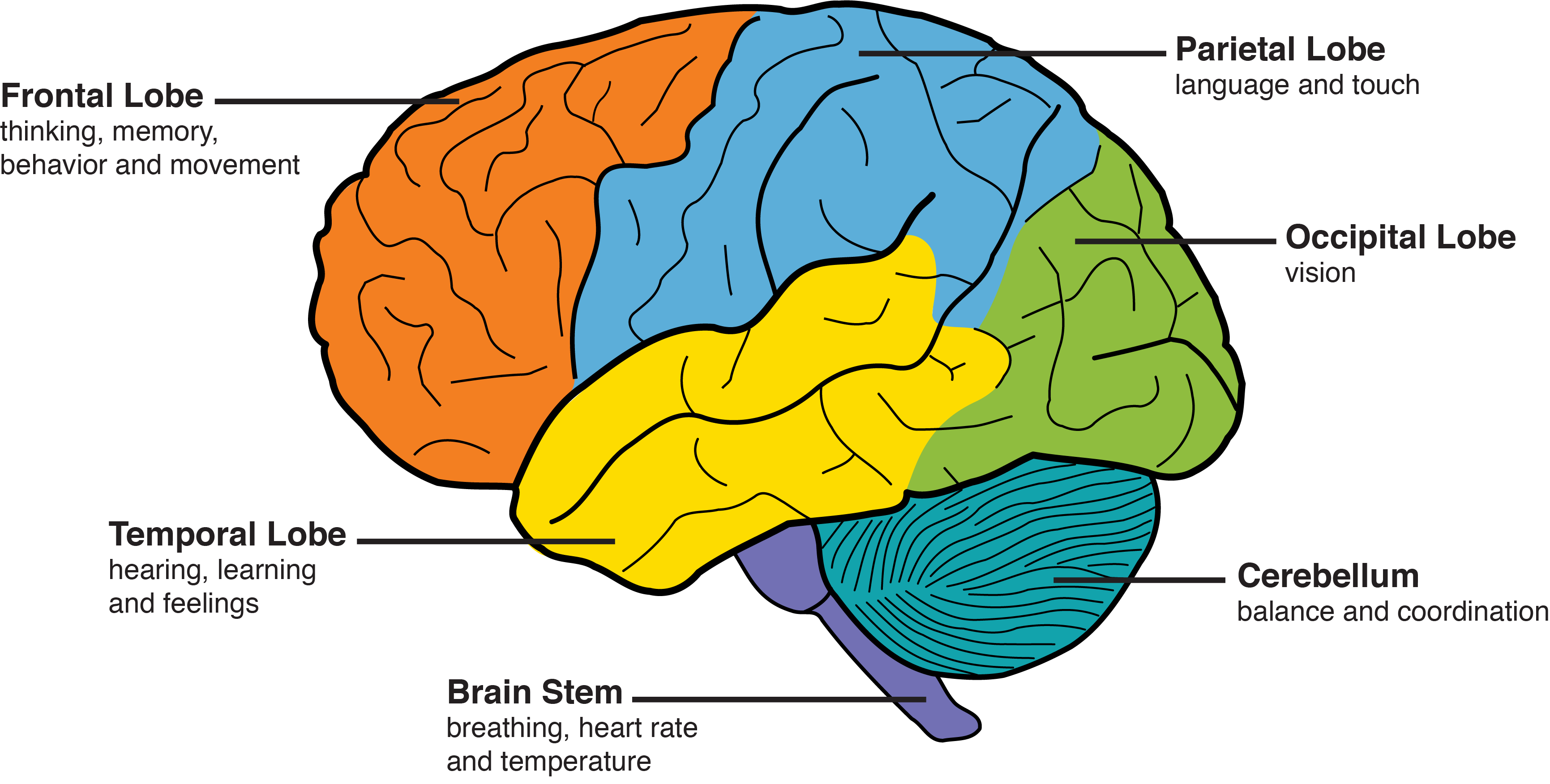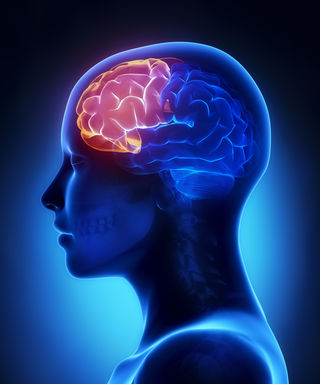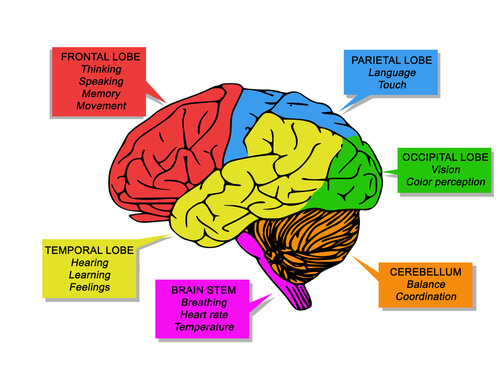How To Talk To Someone With Frontal Lobe Dementia
Popular ideas about the symptoms of dementia or Alzheimers conjure up images of forgetfulness a person lost in a familiar place or unable to recognize loved ones.
How to talk to someone with frontal lobe dementia. FTD Caregiver Health and Support. Caring for someone with a frontotemporal disorder can be very hard both physically and emotionally. A disease that robs a person of lifetime identity also claims a hold on appetite leaving patients with frontotemporal dementia victim to overeating and even death.
Nursing care for people with dementia diseases affecting the frontal lobes places special demands on staff but there is little information available. The frontal lobe is responsible for impulse control and social filters among many other functions. Dont Just Talk Loudly Not every person with dementia has a hearing impairment and using a loud tone can make them feel like you are yelling at them.
Ask the Doctor. Conversation is a two-way process requiring both. Frontal lobe dementia life expectancy will vary between different patients but on average it is around eight years after diagnosis.
Play family videos go through old photographs and just talk about experiences youve shared. This can strengthen feelings of being connected and help lift ones. About 70 percent of cases begin before age 65 so it is a more.
Sometimes dementia can provoke so much aggression and anger that those around the person just arent safe whether thats the caregivers or other. The person you love remains. Fronto-temporal dementia also called frontal lobe dementia is one of the primary degenerative dementia diseases.
I used to work in a hospital on the brain injury floor and we. Frontotemporal dementia FTD a common cause of dementia is a group of disorders that occur when nerve cells in the frontal and temporal lobes of the brain are. FTD is the diagnosis for about 5 percent of people with major neurocognitive disorders dementia.

Caring for someone with a frontotemporal disorder can be very hard both physically and emotionally.
How to talk to someone with frontal lobe dementia. Conversation is a two-way process requiring both. Ask the Doctor. Spend time or journal remembering who the person with FTD was and still is.
Frontotemporal dementia FTD a common cause of dementia is a group of disorders that occur when nerve cells in the frontal and temporal lobes of the brain are. Sometimes dementia can provoke so much aggression and anger that those around the person just arent safe whether thats the caregivers or other. Fronto-temporal dementia also called frontal lobe dementia is one of the primary degenerative dementia diseases.
This can strengthen feelings of being connected and help lift ones. Dont Just Talk Loudly Not every person with dementia has a hearing impairment and using a loud tone can make them feel like you are yelling at them. The frontal lobe is responsible for impulse control and social filters among many other functions.
I used to work in a hospital on the brain injury floor and we. About 70 percent of cases begin before age 65 so it is a more. FTD is the diagnosis for about 5 percent of people with major neurocognitive disorders dementia.
Be angry at the disease not the person. The cognitive problems associated with dementia become more pronounced with mental rigidity forgetfulness severe deficits in planning and attention and difficulty. Nursing care for people with dementia diseases affecting the frontal lobes places special demands on staff but there is little information available.
The person you love remains. Communicating with a person with frontotemporal dementia FTD or semantic dementia SD can be difficult. FTD Caregiver Health and Support.

About 70 percent of cases begin before age 65 so it is a more.
How to talk to someone with frontal lobe dementia. Nursing care for people with dementia diseases affecting the frontal lobes places special demands on staff but there is little information available. This can strengthen feelings of being connected and help lift ones. Frontal lobe dementia life expectancy will vary between different patients but on average it is around eight years after diagnosis.
Communicating with a person with frontotemporal dementia FTD or semantic dementia SD can be difficult. Frontotemporal dementia FTD a common cause of dementia is a group of disorders that occur when nerve cells in the frontal and temporal lobes of the brain are. The person you love remains.
Play family videos go through old photographs and just talk about experiences youve shared. Ask the Doctor. The frontal lobe is responsible for impulse control and social filters among many other functions.
Be angry at the disease not the person. A disease that robs a person of lifetime identity also claims a hold on appetite leaving patients with frontotemporal dementia victim to overeating and even death. Conversation is a two-way process requiring both.
FTD Caregiver Health and Support. The cognitive problems associated with dementia become more pronounced with mental rigidity forgetfulness severe deficits in planning and attention and difficulty. FTD is the diagnosis for about 5 percent of people with major neurocognitive disorders dementia.
Fronto-temporal dementia also called frontal lobe dementia is one of the primary degenerative dementia diseases. I used to work in a hospital on the brain injury floor and we. Dont Just Talk Loudly Not every person with dementia has a hearing impairment and using a loud tone can make them feel like you are yelling at them.








